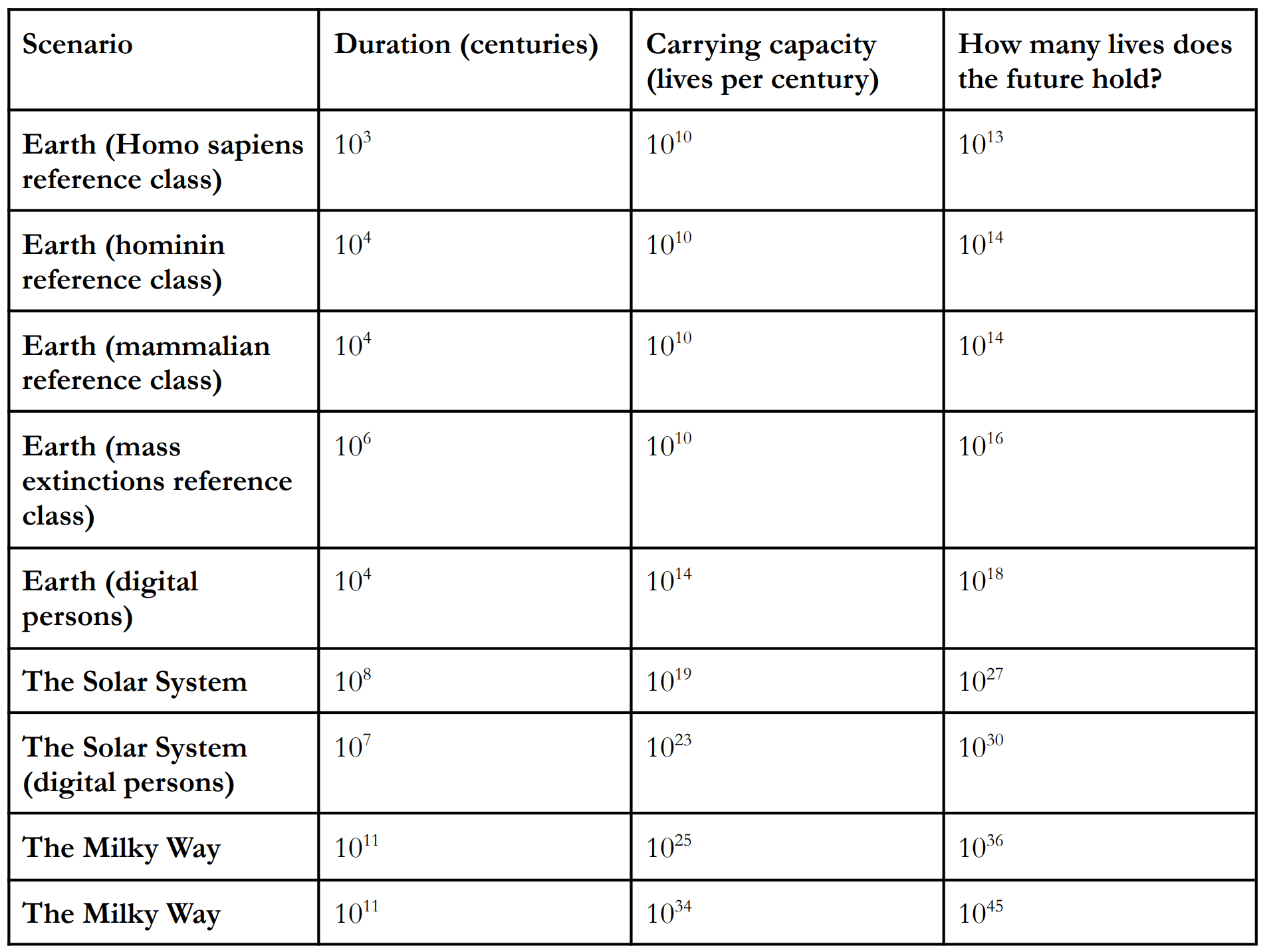Note: as a result of the discussions I’ve had here in the comment section and elsewhere, my views have changed since I made this post. I no longer think permanently stalling technological progress is a realistic option, and am questioning whether a long-term AI development pause is even feasible. -(-H.F., Jan 15., 2024)
———
By this, I mean a world in which:
- Humans remain the dominant intelligent, technological species on Earth's landmasses for a long period of time (> ~10,000 years).
- AGI is never developed, or it gets banned / limited in the interests of human safety. AI never has much social or economic impact.
- Narrow AI never advances much beyond where it is today, or it becomes banned / limited in the interests of human safety.
- Mind uploading is impossible or never pursued.
- Life extension (beyond modest gains due to modern medicine) isn't possible, or is never pursued.
- Any form of transhumanist initiatives are impossible or never pursued.
- No contact is made with alien species or extraterrestrial AIs, no greater-than-human intelligences are discovered anywhere in the universe.
- Every human grows, peaks, ages, and passes away within ~100 years of their birth, and this continues for the remainder of the human species' lifetime.
Most other EAs I've talked to have indicated that this sort of future is suboptimal, undesirable, or best avoided, and this seems to be a widespread position among AI researchers as well (1). Even MIRI founder Eliezer Yudkowsky, perhaps the most well-known AI abolitionist outside of EA circles, wouldn't go as far as to say that AGI should never be developed, and that transhumanist projects should never be pursued (2). And he isn't alone -- there are many, many researchers both within and outside of the EA community with similar views on P(extinction) and P(societal collapse), and they still wouldn't accept the idea that the human condition should never be altered via technological means.
My question is why can't we just accept the human condition as it existed before smarter-than-human AI (and fundamental alterations to our nature) were considered to be more than pure fantasy? After all, the best way to stop a hostile, unaligned AI is to never invent it in the first place. The best way to avoid the destruction of future value by smarter-than-human artificial intelligence is to avoid obsession with present utility and convenience.
So why aren't more EA-aligned organizations and initiatives (other than MIRI) presenting global, strictly enforced bans on advanced AI training as a solution to AI-generated x-risk? Why isn't there more discussion of acceptance (of the traditional human condition) as an antidote to the risks of AGI, rather than relying solely on alignment research and safety practices to provide a safe path forward for AI (I'm not convinced such a path exists)?
Let's leave out the considerations of whether AI development can be practically stopped at this stage, and just focus more on the philosophical issues here.
References:
- Katya_Grace (EA Forum Poster) (2024, January 5). Survey of 2,778 AI authors: six parts in pictures.
- Yudkowsky, E. S. (2023, March 29). The only way to deal with the threat from AI? Shut it down. Time. https://time.com/6266923/ai-eliezer-yudkowsky-open-letter-not-enough/



Just to clarify, population ethics "deals with the moral problems that arise when our actions affect who and how many people are born and at what quality of life". You can reject the total view, and at the same time engage with population ethics.
Since the industrial revolution, increases in quality of life (welfare per person per year) have gone hand in hand with increases in both population and life expectancy. So a priori opposing the latter may hinder the former.
Lower population have lower potential for suffering, but, at least based on the last few hundred years, they may also have greater potential for suffering per person per year. I wonder whether you mostly care about minimising total or average suffering. If total, I can see how maintaining 2010 would be good. If average, as you seemed to suggest in your comment, technological progress still looks very good to me.